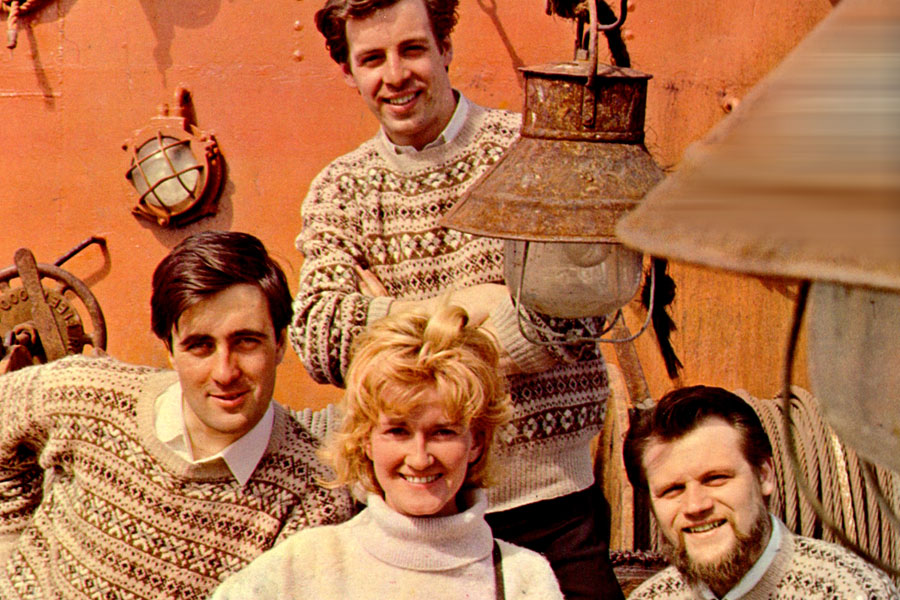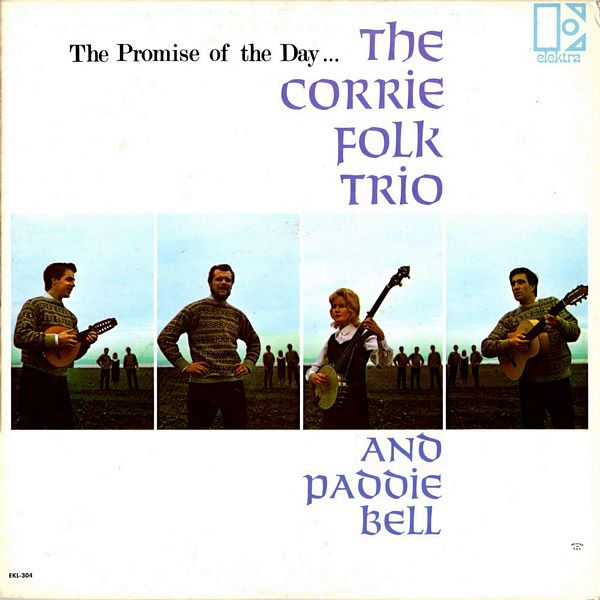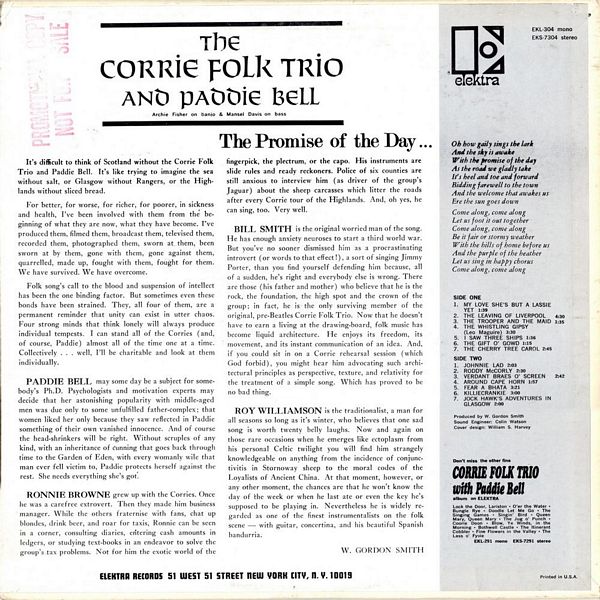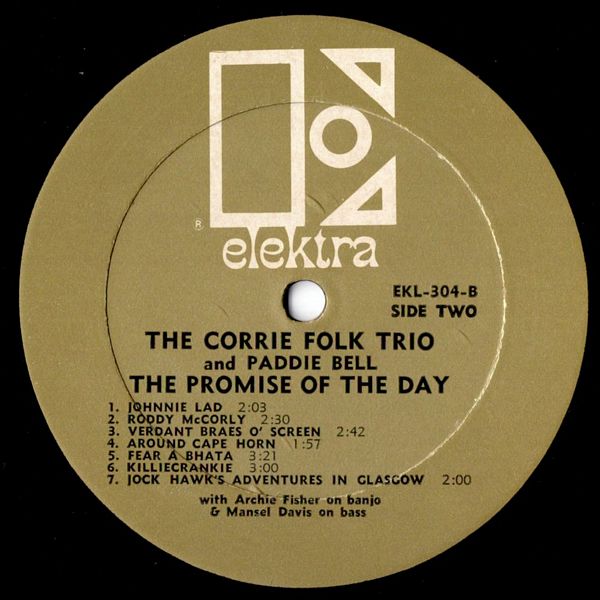

 |


 |
Sleeve Notes
It's difficult to think of Scotland without the Corrie Folk Trio and Paddie Bell. It's like trying to imagine the sea without salt, or Glasgow without Rangers, or the Highlands without sliced bread.
For better, for worse, for richer, for poorer, in sickness and health, I've been involved with them from the beginning of what they are now, what they have become. I've produced them, filmed them, broadcast them, televised them, recorded them, photographed them, sworn at them, been sworn at by them, gone with them, gone against them, quarreled, made up, fought with them, fought for them. We have survived. We have overcome.
Folk song's call to the blood and suspension of intellect has been the one binding factor. But sometimes even these bonds have been strained. They, all four of them, are a permanent reminder that unity can exist in utter chaos. Four strong minds that think lonely will always produce individual tempests. I can stand all of the Gorries (and, of course, Paddie) almost all of the time one at a time. Collectively…well, I'll be charitable and look at them individually.
PADDIE BELL may some day be a subject for somebody's Ph.D. Psychologists and motivation experts may decide that her astonishing popularity with middle-aged men was due only to some unfulfilled father-complex; that women liked her only because they saw reflected in Paddie something of their own vanished innocence. And of course the head-shrinkers will be right. Without scruples of any kind, with an inheritance of cunning that goes back through time to the Garden of Eden, with every womanly wile that man ever fell victim to, Paddie protects herself against the rest. She needs everything she's got.
RONNIE BROWNE grew up with the Corries. Once he was a carefree extrovert. Then they made him business manager. While the others fraternise with fans, chat up blondes, drink beer, and roar for taxis, Ronnie can be seen in a corner, consulting diaries, entering cash amounts in ledgers, or studying text-books in an endeavour to solve the group's tax problems. Not for him the exotic world of the finger-pick, the plectrum, or the capo. His instruments are slide rules and ready reckoners. Police of six counties are still anxious to interview him (as driver of the group's Jaguar) about the sheep carcasses which litter the road after every tour of the Highlands. And, oh yes, he can sing too. Very well.
BILL SMITH is the original worried man of the song. He has enough anxiety neuroses to start a third world war. But you've no sooner dismissed him as a procrastinating introvert (or words to that effect!), a sort of singing Jimmy Porter, than you find yourself defending him because, all of a sudden he's right and everybody else is wrong. There are those (his father and mother) who believe that he is the rock, the foundation, the high spot and the crown of the group; in fact, he is the only surviving member of the original, pre-Beatles Corrie Folk Trio. Now that he doesn't have to earn a living at the drawing-board, folk music has become liquid architecture. He enjoys its freedom, its movement, and its instant communication of an idea. And, if you could sit in on a Corrie rehearsal session ((which God forbid), you might hear him advocating such architectural principles as perspective, texture, and relativity for the treatment of a simple song. Which has proved to be no bad thing.
ROY WILLIAMSON is the traditionalist, a man for all seasons so long as it's winter, who believes that one sad song is worth twenty belly-laughs. Now and again, on those rare occasions when he emerges like ectoplasm from his personal Celtic twilight, you will find him strangely knowledgeable on anything from the incidence of conjunctivitis in Stornoway sheep to the moral codes of the Loyalists of Ancient China. At that moment, however, or any other moment, the chances are that he won't know the day of the week, or when he last ate, or even the key he's supposed to be playing in. Nevertheless, he is widely regarded as one of the finest instrumentalists on the folk scene - with guitar, concertina, and his beautiful Spanish bandurria.
W. Gordon Smith